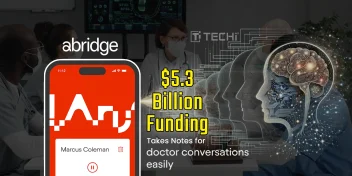There’s a new project brewing at Google X, the company’s research arm, and it has to do with how a healthy human being should look like. As first reported by the Wall Street Journal and later confirmed by Google in a press release, ‘Baseline Study’ will put together anonymous genetic and molecular information from an initial 175 people, with thousands more to come, to create a full picture of a healthy human being. The 175 healthy people will go through an exam that includes the collection of body fluids like blood and saliva, after which Google X researchers will review what they have learnt and engage researchers at Duke University and Stanford University for a much larger study.
Google is collecting medical data to define a healthy human being
Google Inc. has embarked on what may be its most ambitious and difficult science project ever: a quest inside the human body. Called Baseline Study, the project will collect anonymous genetic and molecular information from 175 people—and later thousands more—to create what the company hopes will be the fullest picture of what a healthy human being should be. The early-stage project is run by Andrew Conrad, a 50-year-old molecular biologist who pioneered cheap, high-volume tests for HIV in blood-plasma donations. Dr. Conrad joined Google X—the company’s research arm—in March 2013, and he has built a team of about 70-to-100 experts from fields including physiology, biochemistry, optics, imaging and molecular biology. Other mass medical and genomics studies exist. But Baseline will amass a much larger and broader set of new data. The hope is that this will help researchers detect killers such as heart disease and cancer far earlier, pushing medicine more toward prevention rather than the treatment of illness. “With any complex system, the notion has always been there to proactively address problems,” Dr. Conrad said. “That’s not revolutionary. We are just asking the question: If we really wanted to be proactive, what would we need to know? You need to know what the fixed, well-running thing should look like.”
NOTE: TECHi Two-Takes are the stories we have chosen from the web along with a little bit of our opinion in a paragraph. Please check the original story in the Source Button below.
TECHi weighs both sides before reaching a conclusion.
TECHi’s editorial take above outlines the reasoning that supports this position.

